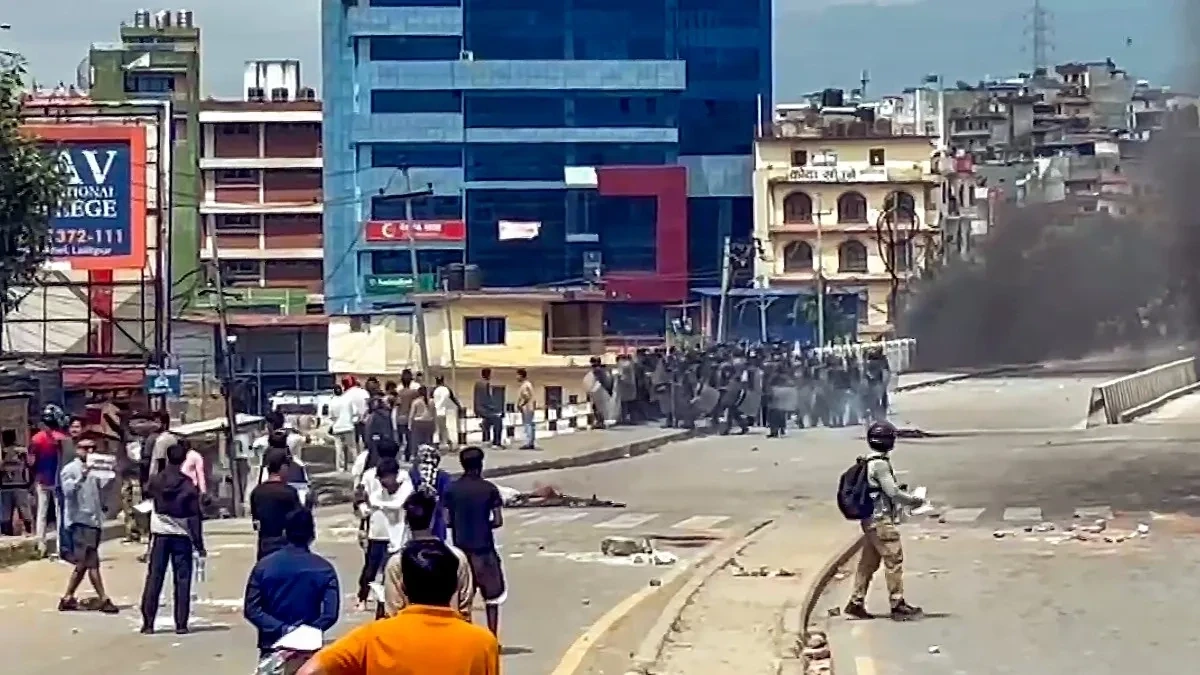Thousands of young Nepalis took to the streets on September 8, 2025, after the government banned 26 major social media platforms, including Facebook, WhatsApp, Instagram, X, and YouTube.
What began as peaceful demonstrations quickly turned violent, with two protesters killed in police firing in Kalimati.
Authorities report at least 22 dead and over 400 injured. Protesters allegedly set fire to local police posts and attacked officers, prompting security forces to open fire. Curfews have been imposed in Kathmandu and other major cities to control the unrest.
PM K.P. Sharma Oli Resigns Amid Protests
As the protests continued, Nepal Prime Minister K.P. Sharma Oli resigned on September 9, 2025, according to his secretariat. The Gen Z-led demonstrations, demanding the reversal of the social media ban, grew for a second consecutive day, putting immense pressure on the government.
What Sparked the Gen Z Protests?
The unrest was triggered by the government’s decision on September 4, 2025, to block social media platforms that failed to register locally, appoint grievance officers, and remove flagged content. The Ministry of Communications and Information Technology ordered the Nepal Telecommunication Authority to make all non-registered platforms inactive until compliance.
Who Are the Protesters?
The protests, widely referred to as the “Gen Z protests”, are primarily led by Nepalis under the age of 30, many in school or college uniforms. Coordinated by youth non-profit Hami Nepal, the demonstrations are not formally aligned with political parties.
Kathmandu Mayor Balendra Shah, an independent politician, has voiced strong support for the protests. Protesters have also highlighted issues like corruption, nepotism, and lack of political accountability, frequently criticizing political elites with the phrase “nepo babies.”
Rabi Lamichhane Released from Prison
Meanwhile, Rastriya Swatantra Party (RSP) Chairman Rabi Lamichhane was released from Nakkhu Prison after authorities could no longer guarantee his safety. Lamichhane, detained over a cooperative savings case, was taken into the custody of his family. A cheering crowd gathered outside the prison, where he addressed supporters via a video shared on social media.
Impact on Travel and Safety Advisory
Nepal airports have suspended several flights to and from India due to escalating unrest. The Ministry of External Affairs (MEA) has issued a travel advisory for Indian citizens, urging them to remain indoors, avoid public gatherings, and follow instructions from local authorities and the Indian Embassy in Kathmandu.
Emergency helpline numbers for Indian citizens:
+977-980 860 2881 (WhatsApp call)
+977-981 032 6134 (WhatsApp call)
The recent resignation of 21 Members of Parliament from Rabi Lamichhane’s Rastriya Swatantra Party (RSP) has intensified Nepal’s political uncertainty, marking a strategic maneuver to challenge the traditional elite and potentially push the country toward mid-term elections or a constitutional crisis.
Released from prison, Lamichhane has become the face of a rising political tide, leveraging his clean image, digital influence, and grassroots appeal to channel widespread frustration among young Nepalis, students, and urban professionals. Seen as a decisive alternative to the aging leadership of Nepali Congress, CPN-UML, and the Maoists, Lamichhane’s growing support, including from the diaspora, combines moral credibility with financial backing. By orchestrating these coordinated resignations, the RSP not only positions itself as a moral voice against a dysfunctional Parliament but also strengthens Lamichhane’s role as a potential kingmaker capable of reshaping Nepal’s political landscape.
